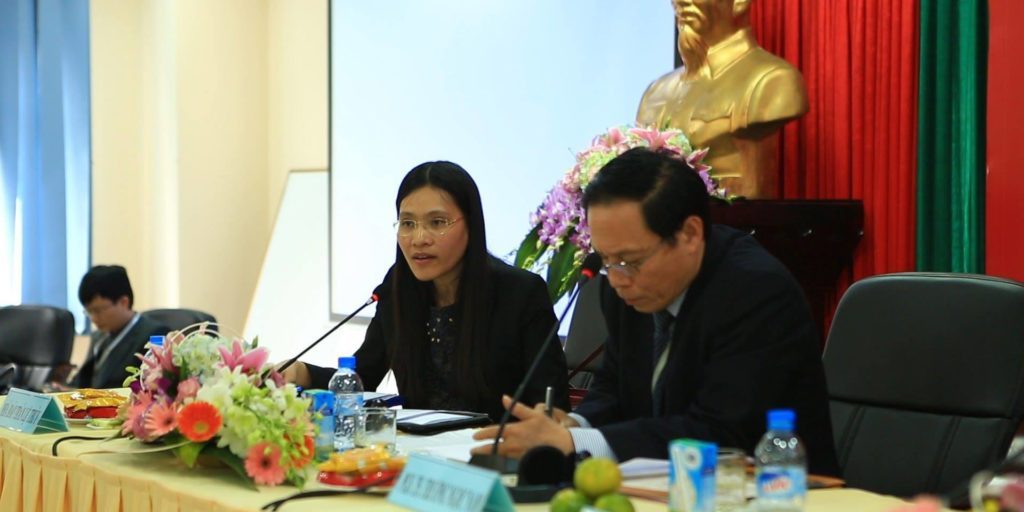Ladies and gentlemen,
Like international newsrooms, Vietnamese newspapers are facing a crisis due to competition around the Internet and the retreat of traditional newspapers. Even prestigious newspapers worldwide, for hundreds of years, are under pressure of change or closure. In the age of civic journalism and the Internet, what makes journalists and newspapers still needed? Is there anything that newspapers and journalists can use to compete and stand out from the news on the Internet, like blogs, Facebook or Twitter? It is probably credibility, because journalists have to undergo rigorous professional processes and adhere to verification principles, something that other types of news cannot guarantee. Therefore, investigation is the strength of the traditional media to survive in the current age of Internet. In Vietnam, after the economic reform, investigation brought about a strength, an influence and a voice in the field of journalism.
Anti-corruption investigations in the late 1980s and 1990s contributed to the creation of major newspapers such as Tuoi Tre Ho Chi Minh City, Thanh Nien, or Lao Dong. Investigative journalism gives society and the public the feeling of having more support when there is injustice, and give them the feeling of participation in the functioning of society in a better direction. To put it simply, it can relieve the frustration of the people and the society.
Investigative journalism provides journalists with a targeted, respected, welcomed, and sometimes award-winning way of working. At the same time it make journalists feel they are doing the best job. Currently, a number of journalists in Vietnam accept to face dangers and pressures to write investigative articles with a high professionalism no less than the international press. They brought to light many works with public benefits such as anti-crime, organized anti-gangsterism, corrupt and negative acts, and protection of health and environment safety for the people. If the investigative press is weakened, it will lose a valuable prop for people, state agencies and businesses when they need to speak up to ensure the fairness and the right and left of society. However, at present, with the development of socio-economic, institutional, investigative journalism in Vietnam, we are facing many challenges. In order to overcome this challenge and maintain its development role, investigative media need to bring up a new ground, both in terms of profession and the legal environment. Investigative journalists need to be supported methodically, professionally invested better, to ensure the accuracy and objectivity of the articles and to avoid unfortunate mistakes. This support can come from the state, from the editorial board and the newsroom. At the same time, journalism training organizations, such as the effort we are making, and investigative journalists also need to be protected by the Law when acting on behalf of public interest.
As we all know, the investigative genre can bring about a lot of results, but it forces journalists to get involved, face danger, and invest a lot of time and money compared to other genres. Investigative media also face accusations on the law side due to the sensitive nature of the content, so if the press on the public interest is not entitled to immunity on the legal side than the press because of the Other purposes such as commercial, sometimes for self-interest and private purposes, the investigative media will find it difficult and less motivated to do. I see that many countries around the world, not just Western countries, have also applied the use of the public interest to journalists when journalists face legal allegations. More specifically, if the press for the public interest does not have a private or malicious interest, and when fully responsible and professional, for example, complying with information to verify, give accurate information, fair, they will enjoy immunity before the Law. That is, the crime of mitigation when there is a violation of the Law, but for the public interest, they will enjoy the right of immunity to alleviate a part of the crime or be reduced entirely. This clear distinction and the certainty that the Law will protect journalists for the public interest will force the newsrooms and journalists to abide by profession, principles and ethics. At the same time, the law can punish journalists who use the press for self-interest or malicious purposes without negatively affecting the morale of journalists when doing them for the public good. Journalists investigating for the public interest can be more secure and motivated to work.
The definition of the public interest in Vietnam must be discussed a lot, but here I would like to introduce the definition of the British press for us to refer. The British Press Complaints Commission’s code of ethics defines the following: The public good interests range from lists of patients in hospitals, poor management, corruption, misuse of public funds, the status of paying taxes on benefits, the status of anti-social or suspicious behavior, etc.,including things like this, exposing, detecting criminal acts such as anti-social, blocking the public from being ignored.



